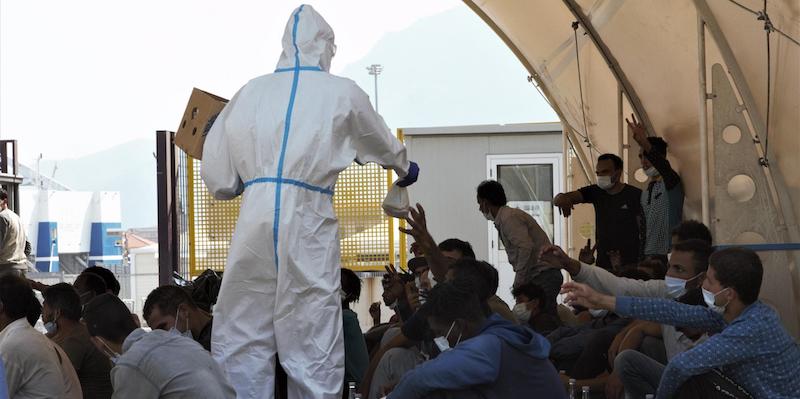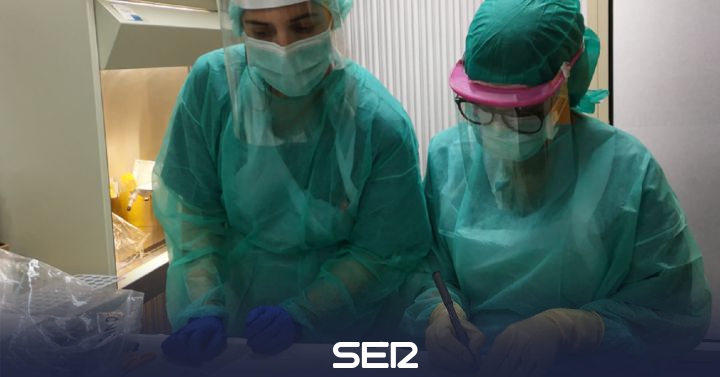The Palermo prosecutor’s office has opened an investigation into the death of an unaccompanied minor migrant, which occurred on October 5 after the boy had urgently disembarked from the Allegra ship, where he was held in solitary confinement due to the coronavirus containment measures: the law provides that those seeking international protection remain in solitary confinement for 14 days from their arrival in the country. The boy was called Abou, he was 15 and came from the Ivory Coast. The investigation was opened following the complaint of sociologist Alessandra Puccio, appointed her guardian by the juvenile court. An autopsy will be performed today, Wednesday.
La ONG spagnola Open Arms he rebuilt the story of the boy from the moment he rescued him, on September 10, while he was on a ship with other migrants. According to the Emergency doctor aboard Open Arms, “Abou did not report any particular symptoms, apart from severe malnutrition, common to most of the people who were on his boat”. On September 17, he began to have fever and severe lower back pain, he was tested for coronavirus and tested negative; doctors rehydrated him with an IV, gave him paracetamol and antibiotic therapy suspecting a urinary tract infection. By the time he left the clinic, his fever had dropped.
Thread /1
We are dismayed and saddened by the death of Abou, a 15-year-old boy with the dream of reaching Europe. The people we rescue are all in precarious health conditions, have suffered abuse and violence, have faced days of waiting at sea.— Open Arms IT (@openarms_it) October 6, 2020
The following morning, September 18, Abou had been examined again: he had a low fever and was better. The doctor gave him an antibiotic, gave him an abdominal ultrasound that didn’t give troubling results, and put him through another test for coronavirus, again negative. “Abou was kept under observation for about two hours, during which time he showed no particular signs of discomfort and asked if he could have something to eat,” writes Open Arms.
The NGO adds that she never managed to communicate directly with the boy due to the language barrier, but that she did so through the mediation of a friend of hers who spoke French. The medical staff also said that the scars on Abou’s body did not appear to be due to recent torture and mistreatment, as also confirmed by “a friend who acted as an interpreter” for which “they were very old injuries dating back to childhood. “.
At 2 pm on September 18, Abou was transferred to the Allegra ship, where he would spend 14 days in solitary confinement. He still had the drip in his arm and the Emergency doctor gave the Red Cross doctor a report on his health situation. From this moment there is not much news, apart from a medical report of September 28, which reads that Abou was examined by a doctor “called by the patient’s companions visibly alarmed by his condition”, because he had not spoken and had not eaten for three days. Always in the medical report, reports the newspaper Future, we read that «the patient is apyretic, apparently disoriented, not very cooperative. Upon inspection numerous scars are visible, probably resulting from torture. The patient complains of bilateral lumbar pain “and that” renal involvement is suspected following a state of dehydration “.
After testing negative for two coronavirus swabs, he was disembarked from the Allegra and rushed to the Cervello hospital in Palermo. Here, “psychologists and cultural mediators tried to communicate with him but he continued not to speak”, he told his tutor Puccio a Republic. On Saturday he fell into a coma and was transferred to the Ingrassia hospital, because there were no intensive care facilities in the Cervello hospital, where he then died on Monday 5 October, around 3:30 pm.
Puccio said that “I want to go deeper into this story, so that what happened does not happen again. They told me that for days there was only one doctor for the 600 migrants of the quarantine ship, today another one arrived ». Open Arms and Emergency also reiterated «the need for [le persone migranti] they are disembarked in a safe harbor as soon as possible and that they are allowed to spend the days of quarantine in adequate facilities where they are guaranteed the necessary care and where their rights are respected ”.
–


:quality(80)/cdn-kiosk-api.telegraaf.nl/9fb8e946-0873-11eb-a79a-02d2fb1aa1d7.jpg)